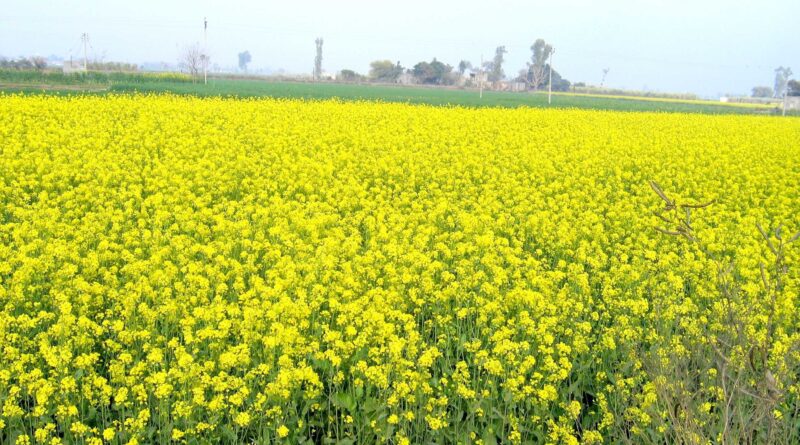India may adopt ‘model mustard farms’ to decrease oilseed import
By Jitendra Choubey
Over 3500 ‘model mustard farms’ raised the hope to become self-sustainable in edible oils production as India meets 60% of its edible oil demand through imports. Given unabated import of edible oils, Gujarat-based Edible Oil Association has written a letter to seek the attention of Prime Minister Narendra Modi to act on it.
At present, India meets nearly 60% of its edible oil demand through imports of 16.47 million tons (MT) of edible oils valued at Rs 1.38 lakh cores (US$ 16.65 billion) every year.
The Oilseeds Industry body’s initiatives ‘model farms’ showed increased oilseeds production by 35% compared to conventional farms in five states would soon pave the way for India to reduce its dependency on importing of edible oils.
The initiative supported by the Bharatpur-based government’s research body, National Research Centre on Rapeseed-Mustard (NRCRM) in five states engaged around 1.25 lakhs farmers and adopted best practices like procuring best seeds quality, modern farming equipment, and timely experts guidance.
The average yield realized by conventional/control farms is 1787.5 kg per ha whereas the yield realized in model farms is 2414.8 kg/ha which is enhanced by 35%.
The model farm initiatives started in 2020-21 in Rajasthan and it reached five states in 2023-24. In the meantime, India’s mustard seeds witnessed a remarkable increase in production from 8.6 Million tonnes(MT) to 11.35 MT in 2022-23 and it is projected to cross 12MT in 2023-24.
“The model farms created a chain reaction in the past four years which coincide with India’s increased mustard production with increasing sowing areas by increasing from 6.70 million hectares to 10 million hectares,” said B V Mehta, Executive Director of Solvent Extraction Association (SEA). SEA and Solidaridad have taken the initiative of a farm model.
In India, Rapeseed and Mustard accounts for nearly one third of edible oil produced through primary sources making it country’s key edible oilseed crop. Besides, it is also water efficient and low cost of production and contributes export earning of about Rs. 5000 crores by exporting 22.00 lakh MT of Rapeseed Meal during 2023-24(Apr-Mar).
“Mustard is the most important oilseed crop for increasing the domestic edible oil production and to make India self-reliant in edible oil while enhancing income and livelihood of farmers,” says Vijay Data, Chairman of SEA RapeMustard Promotion Council.
He further said the Mustard Model Farm project would significantly advance the existing practices and increase edible oil pool to attain self-sufficiency in the country.
“Our farm model aligns with India’s vision of achieving self-sufficiency in edible oil,” said Dr. Suresh Motwani, General Manager of Solidaridad. He recognized the role of the Directorate of NRCRM who lent knowledge support.
“We look forward to continued cooperation and support from the institute and will strive to scale up at large-scale expansion of such initiative,” he added.

Pointers:
1. Industry initiatives model farms increased mustard production in the
2. 35% increase in yield of mustard over the 5 years of Mustard model farm project
3. The average yield realized by control farms is 1787.5 kg per ha whereas the yield realized in model farms is 2414.8 kg/ha
4. At present, India meets nearly 60% of its edible oil demand through imports 16.47 million tons (MT) of edible oils valued at Rs. 1.38 lakh cores (US$ 16.65 billion) every year.
5. Gujarat-based Edible oil association has written a letter to seek attention of prime minister Narendra Modi to act on unabated import.
5. Experts say Farm model aligns with India’s vision of achieving self-sufficiency in edible oil reduce its import.
This article has been republished from The New Indian Express.

